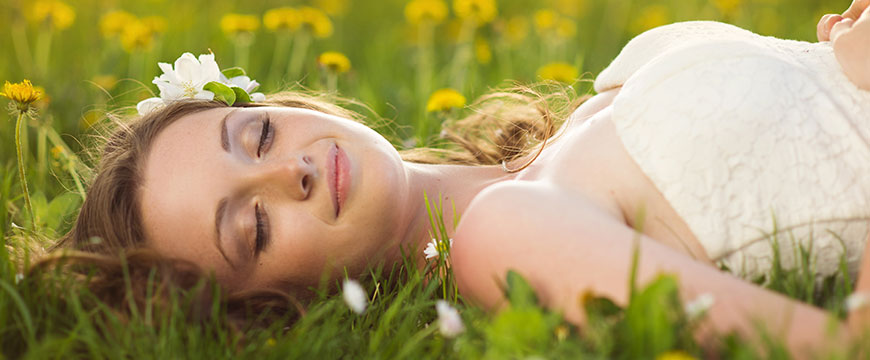
The allergy season can be unpleasant. With watery eyes, sneezing, coughing, and congestion, simply getting through the day can be difficult, let alone getting enough sleep.
In addition to exacerbating sleep problems such as snoring or obstructive sleep apnea, allergies can make it difficult to fall asleep and keep you from staying asleep once you do.
The more severe your symptoms, the more likely that your allergies are causing you to sleep poorly.
To have a great night’s sleep, you need to find an allergy doctor to help you fix the issue.
Besides seeing an allergy professional, you can do many other things to curb the condition. These things include:
Keep your house doors closed
Closing windows and doors at night can keep external allergens like pollen, dust, and mold from entering your home and causing allergies.
Indoor allergens such as pet dander, dust mites, and mold spores are easy to keep contained in a closed room, therefore keeping the windows and doors closed can help decrease your exposure to these allergens.
Closing windows and doors can help improve your house’s air quality. When the windows are open, dust, pollution, and other airborne particles can enter your home and irritate your airways, making breathing difficult.
You should close your windows and doors to keep pollutants out and breathe fresher air.
Shower before you sleep
During the pollen season, showering before bed might assist in eliminating any pollen particles that may have accumulated on your skin and hair throughout the day.
This is especially vital if you’ve been outside, as pollen can readily adhere to your skin and hair.
Showering before bed removes any pollen particles that may have accumulated on your body, lowering the probability of allergy reactions at night.
Showering before bed is especially useful for people with allergies or asthma, as pollen can aggravate their symptoms and make sleeping difficult.
Tie back your long hair.
Tying your hair up at night can help avoid allergies and alleviate the severity of hay fever symptoms by reducing contact between your hair and your face.
When you spend time outside during the day, your hair may gather pollen and other allergens. If you do not tie your hair up in bed, allergens might transfer to your pillowcase and come into touch with your face, aggravating hay fever symptoms and causing allergic responses. You don’t want this, do you?
Tying your hair decreases the possibility of allergens coming into touch with your face. It alleviates the severity of hay fever symptoms.
Besides tying your hair, you should also consider shampooing it before bed, which can assist in removing any collected pollen or other allergens, lowering the chance of allergy reactions at night.
Get hypoallergenic bedding
Hypoallergenic bedding can help avoid seasonal allergies by limiting exposure to common allergens, including dust mites, pollen, and pet dander.
Dust mites are microscopic parasites that feed on dead skin cells and prefer warm, humid settings. They are a prevalent cause of seasonal allergies, and you can find them in bedding, mattresses, and pillows.
Hypoallergenic bedding repels dust mites, preventing them from gathering in your bedding. If you have allergies, particularly reactions at night or when you wake up, you might consider using a hypoallergenic mattress.
Pollen, another frequent allergy, travels with the wind and can readily settle in bedding. Hypoallergenic bedding comprises tightly woven materials that prevent pollen from infiltrating the fabric and contacting your skin. As you can tell, this keeps you safe.
Change your laundry routine.
During the pollen season, pollen particles can easily adhere to garments and textiles when spent outdoors. If you do not wash your clothes regularly, these particles can build up and cause allergic reactions indoors.
This is especially crucial for persons with allergies or asthma, as pollen can worsen their symptoms.
Washing your clothes regularly during the pollen season can help eliminate pollen particles and other allergens that may have accumulated on your clothing, lowering the risk of allergic responses.
Dab Vaseline on your nostrils
Applying Vaseline (petroleum jelly) to the inside of your nostrils can trap pollen and other airborne allergens, decreasing their entry into your nasal passages and relieving hay fever symptoms.
Applying a tiny layer of Vaseline inside your nostrils forms a barrier that can trap pollen and other allergens before they enter your nose.
Cover your duvet with a sheet.
Covering your bed sheets with a separate sheet creates a barrier that protects your bedding from pollen particles, lowering the likelihood of allergic responses and hay fever symptoms.
To establish this barrier, throw a clean sheet over your regular bedding and tuck it around the edges to keep it in place.
This additional layer can help to keep pollen and other allergens from settling on your bedding and contacting your skin and respiratory system.
Wash the extra sheet as often as possible to remove any pollen particles that may have gathered. Furthermore, during hay fever season, wash your usual bedding at least once a week to eliminate any pollen or allergens that may have been collected on it.
Wash your bedding once a week in hot water.
Washing bedding at a high temperature will eliminate pollen and other allergens that may have accumulated on your sheets, pillowcases, and blankets, lowering the likelihood of allergic responses and hay fever symptoms.
Washing your bedding at a high temperature will help break down and eliminate pollen particles and other allergens that may be trapped in the fibers.
Doing this is especially crucial during hay fever season when pollen counts are high, and exposure to pollen is increased.
Washing bedding at high temperatures might help destroy dust mites and other germs that can cause allergic reactions and worsen hay fever symptoms.
Parting shot
These are some of the things you can do to prevent allergies from coming the way of your sleep. For peace of mind, work with an allergy specialist Manassas VA who will recommend antihistamines or other medications that are right for your condition.